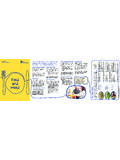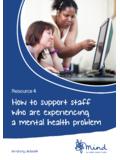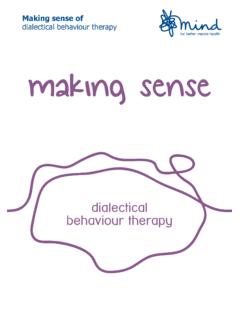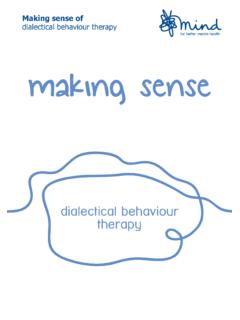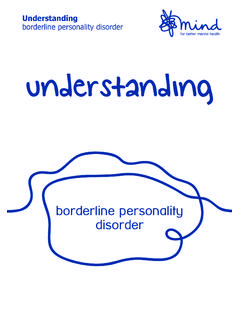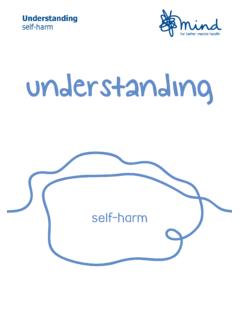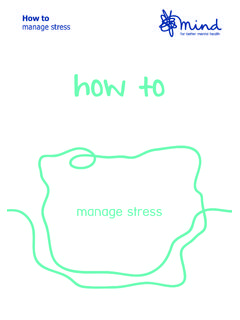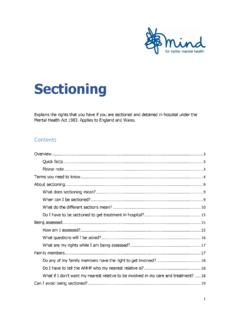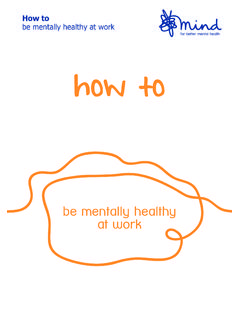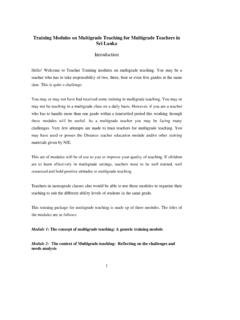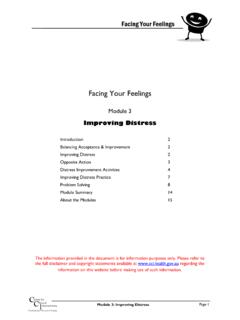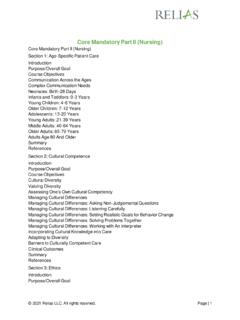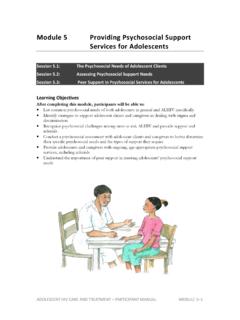Transcription of Dialectical behaviour therapy (DBT) - Mind
1 Mind 2020 1 Dialectical behaviour therapy (DBT) Explains what DBT is, what problems it can help with, what sessions are like and how to access treatment. If you require this information in Word document format for compatibility with screen readers, please email: Contents What is DBT? .. 2 What can DBT treat? .. 2 What are DBT sessions like? .. 3 How do I get DBT? .. 6 Can I do DBT by myself?.. 7 Useful contacts .. 8 Mind 2020 2 What is DBT? Dialectical behaviour therapy (DBT) is a type of talking therapy .
2 It's based on cognitive behavioural therapy (CBT), but it's specially adapted for people who feel emotions very intensely. The aim of DBT is to help you: understand and accept your difficult feelings learn skills to manage them become able to make positive changes in your life. Dialectical means trying to understand how two things that seem opposite could both be true. For example, accepting yourself and changing your behaviour might feel contradictory. But DBT teaches that it's possible for you to achieve both these goals together.
3 "Before DBT, I felt like the only solution was through learning various skills from DBT I can ride the waves of my depression rather than letting them swallow me." What's the difference between DBT and CBT? CBT focuses on helping you to change unhelpful ways of thinking and behaving. DBT does this too, but it differs from CBT in that it also focuses on accepting who you are at the same time. DBT also usually involves more group work than CBT. A DBT therapist will expect and encourage you to work hard to make positive changes.
4 What can DBT treat? Research shows that DBT can be helpful in tackling problems like: self-harming suicide attempts depression. It was originally developed for borderline personality disorder (BPD), so most of the evidence for it so far has been about treating people with this diagnosis. Some NHS services are also starting to offer DBT for: Mind 2020 3 children and adolescents drug and alcohol problems eating problems offending behaviour (committing crimes). But regardless of your diagnosis or problems, DBT might not be right for you.
5 "After a few months I found that, although how I felt and a lot of my symptoms did not change, I was managing them all so much better. I could actually get through days without a crisis." DBT is more likely to work for you if: you're committed to making positive changes in yourself you're ready to work hard at therapy , and do homework assignments you're ready to focus mostly on your present and future, rather than your past you feel able to do some sessions in a group with others. Some people like group work, but others find it harder.
6 You might ideally prefer to work with a DBT therapist one-to-one, but unfortunately this is not always offered as an option. Talk to your doctor about what you would find most helpful to see what is available in your area. It's important to remember that everyone experiences therapy differently. See our information on getting the most from any therapy for more tips, including things to try if you're on a course that isn't working for you. "I was really nervous about the group aspect of DBT. When I started group I wouldn t speak or make eye contact, but everyone was supportive and by the end I was much more confident and even taught a skill session to the other group members.
7 " What are DBT sessions like? DBT can vary between different providers and across different areas. But these are the types of sessions that a DBT course usually includes: DBT pre-treatment Some therapists may offer you an assessment or pre-treatment phase of DBT. This is where the therapist will look at how suitable DBT is for you. They might offer you several sessions where you Mind 2020 4 will learn about the DBT model. Then if you decide it is the right therapy for you, they will ask you to make a commitment to the treatment.
8 Individual therapy Individual therapy usually involves weekly one-to-one sessions with a DBT therapist. Each session lasts approximately 45 60 minutes. The individuals sessions have a hierarchy of goals: 1. To help keep you safe by reducing suicidal and self-harming behaviours. 2. To reduce behaviours that interfere with therapy . 3. To help you reach your goals and improve your quality of life by addressing what's getting in the way. This might be other mental health problems like depression or hearing voices. Or it might be things in your personal life like employment or relationship problems.
9 4. To help you learn new skills to replace unhelpful behaviours and help you achieve your goals. your DBT therapist is likely to ask you to fill out diary cards as homework, and bring them to sessions. This is for you to track your emotions and actions, and look for patterns and triggers in your life. You then use this information to decide together what you will work on in each session. You can find some sample diary cards on the DBT Self Help website. "I ve learned that emotions are not the enemy. They are useful and have functions.
10 I still feel emotions intensely, but I can now identify them and know how to manage them without using harmful behaviours." Skills training in groups In these sessions DBT therapists will teach you skills in a group setting. This is not group therapy , but more like a series of teaching sessions. There are usually two therapists in a group and sessions might be weekly. The room is sometimes arranged like a classroom where your skills trainers will be sat at the front. The aim of these sessions is to teach you skills that you apply to your day-to-day life.
